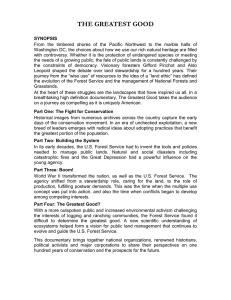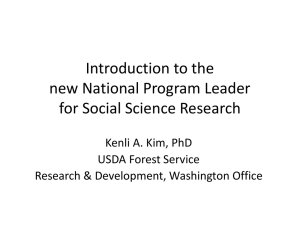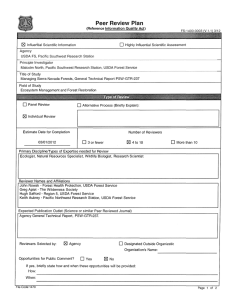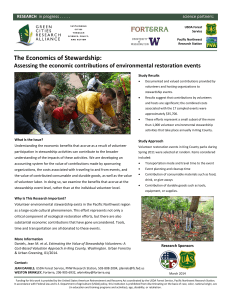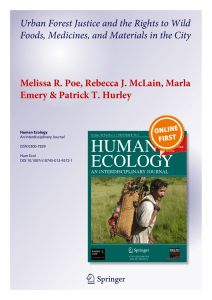Gathering and Stewardship of Nontimber Forest Products:
advertisement
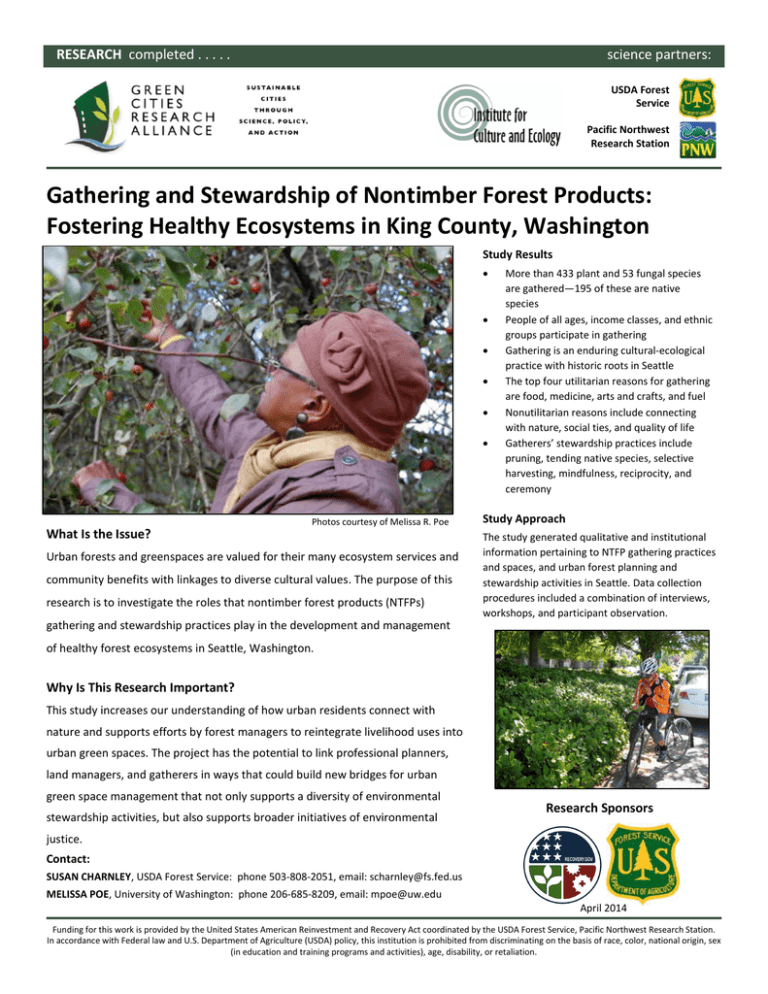
RESEARCH completed . . . . . science partners: USDA Forest Service Pacific Northwest Research Station Gathering and Stewardship of Nontimber Forest Products: Fostering Healthy Ecosystems in King County, Washington Study Results • • • • • • What Is the Issue? Photos courtesy of Melissa R. Poe Urban forests and greenspaces are valued for their many ecosystem services and community benefits with linkages to diverse cultural values. The purpose of this research is to investigate the roles that nontimber forest products (NTFPs) gathering and stewardship practices play in the development and management More than 433 plant and 53 fungal species are gathered—195 of these are native species People of all ages, income classes, and ethnic groups participate in gathering Gathering is an enduring cultural-ecological practice with historic roots in Seattle The top four utilitarian reasons for gathering are food, medicine, arts and crafts, and fuel Nonutilitarian reasons include connecting with nature, social ties, and quality of life Gatherers’ stewardship practices include pruning, tending native species, selective harvesting, mindfulness, reciprocity, and ceremony Study Approach The study generated qualitative and institutional information pertaining to NTFP gathering practices and spaces, and urban forest planning and stewardship activities in Seattle. Data collection procedures included a combination of interviews, workshops, and participant observation. of healthy forest ecosystems in Seattle, Washington. Why Is This Research Important? This study increases our understanding of how urban residents connect with nature and supports efforts by forest managers to reintegrate livelihood uses into urban green spaces. The project has the potential to link professional planners, land managers, and gatherers in ways that could build new bridges for urban green space management that not only supports a diversity of environmental stewardship activities, but also supports broader initiatives of environmental Research Sponsors justice. Contact: SUSAN CHARNLEY, USDA Forest Service: phone 503-808-2051, email: scharnley@fs.fed.us MELISSA POE, University of Washington: phone 206-685-8209, email: mpoe@uw.edu April 2014 Funding for this work is provided by the United States American Reinvestment and Recovery Act coordinated by the USDA Forest Service, Pacific Northwest Research Station. In accordance with Federal law and U.S. Department of Agriculture (USDA) policy, this institution is prohibited from discriminating on the basis of race, color, national origin, sex (in education and training programs and activities), age, disability, or retaliation.
